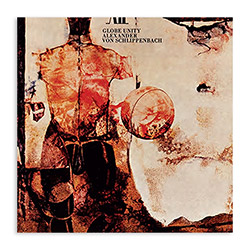
Wild, nearly unprecedented and an exhilarating direction in European Free Improvisation heard in the 1st recordings from 1966 of pianist Alexander von Schlippenbach's Globe Unity band, a 14-piece ensemble that included young saxophonists Peter Brötzmann, Gerd Dudek & Kris Wanders, bassist Peter Kowald, bass clarinetist Willem Breuker, trumpeter Manfred Schoof, &c.
In Stock
Quantity in Basket: None
Log In to use our Wish List
Shipping Weight: 4.00 units
EU & UK Customers:
Discogs.com can handle your VAT payments
So please order through Discogs
Sample The Album:
Manfred Schoof-cornet, fluegelhorn
Claude Deron-trumpet
Willi Lietzmann-tuba
Peter Brotzmann-alto saxophone
Gerd Dudek-tenor saxophone
Kris Wanders-baritone saxophone
Willem Breuker-bass clarinet
Gunter Hampel-bass clarinet
Karlhanns Berger-vibraphone
Buschi Niebergall-bass
Peter Kowald-bass
Jaki Liebzeit-drums
Mani Neumeier-drums
Alexander von Schlippenbach-conductor, piano, percussion
Click an artist name above to see in-stock items for that artist.
Limited edition of 1000 copies
UPC: B0BGM3PQJC
Label: Corbett vs. Dempsey
Catalog ID: CvsDCD091
Squidco Product Code: 32404
Format: CD
Condition: New
Released: 2022
Country: USA
Packaging: Cardboard Gatefold
Recorded at Ariola Studio, in Cologne, Germany, on December 6th and 7th, 1966, by Gert Lemnitz. Originally released in 1967 as a vinyl LP on the German SABA label with catalog codes SB 15109 & SB 15 109 ST.
"In 1966, pianist Alexander von Schlippenbach assembled his first large ensemble to play his compositions "Globe Unity" and "Sun." This 14-piece band, which brought together some of the leading figures in European improvised music, would eventually expand - incorporating not only Europeans but also American and Asian musicians - and assume its rightful name: Globe Unity Orchestra.
In its nascent outing, beautifully recorded at Ariola Studio in Cologne, Schlippenbach's band was already sensational, performing at various festivals and solidifying the reputations of some of its star players. Most notably among these was a 25-year-old saxophonist named Peter Brötzmann, whose whole band - saxophonist Kris Wanders, drummer Mani Neumeier, and bassist Peter Kowald, the latter of whom would for a period assume nominal leadership of Globe Unity - was incorporated into the large Schlippenbach group.
Globe Unity was Brötzmann's first outing on LP. Kowald's too. And future drum heroes of the krautrock genre, Neumeier (with Guru Guru) and Jaki Liebezeit (with Can) constitute the incredible rhythm section. If you factor in German early-free-music mainstays Gunter Hampel (here on flute and bass clarinet, no vibes), trumpeter Manfred Schoof, bassist Buschi Niebergall, and tenor saxophonist Gerd Dudek, Dutch saxophonist and clarinetist Willem Breuker, French trumpeter Claude Deron, the enormity of the band's potential becomes apparent. Add Schlippenbach himself, an absolute cyclone on the piano as well as prominent tubular bells and gong, and the global scene is set.
Schlippenbach's unique position at the time, as one of the foremost players in German free music, but also as a rising young composer who'd studied with Bernd Alois Zimmermann, allowed him to serve as exactly the right conduit for several approaches to creative music, from introducing his graphically notated scores to making a perfect context for the debuts of future star improvisors Brötzmann and Kowald.
Schlippenbach's Globe Unity was first issued on SABA in 1967, then MPS a couple of years after that. It has long been out of print and has only ever appeared on CD in a tiny Japanese version published in 1999. Corbett vs. Dempsey is reissuing this classic record in a special, strictly limited edition of 500 vinyl LPs and 1000 CDs, with a faithful facsimile of the original LP's gatefold cover. The music was remastered from the original tapes and is licensed directly from MPS. Anyone interested in the history of improvised music needs to hear Globe Unity, which retains a sense of urgency 56 years after it was waxed."-Corbett Vs. Dempsey
Also available on vinyl LP.Limited edition of 1000 copies
Artist Biographies
• Show Bio for Manfred Schoof "Manfred Schoof (born 6 April 1936) is a German jazz trumpeter. Schoof was born in Magdeburg and studied music in Kassel and Cologne. He is a founder of European free jazz and collaborated with Albert Mangelsdorff, Peter Brötzmann, Mal Waldron, and Irène Schweizer. He has interpreted Die Soldaten, an operatic work by the contemporary composer Bernd Alois Zimmermann. Schoof won various jazz prizes and is involved in the German musical rights association. Since 2007 he has been chairman of the Union Deutscher Jazzmusiker. He has been a professor in Cologne since 1990." ^ Hide Bio for Manfred Schoof • Show Bio for Peter Brotzmann "Born Remscheid, Germany on 6 March 1941; soprano, alto, tenor, baritone and bass saxophones, a-clarinet, e-flat clarinet; bass clarinet, tarogato. Peter Brötzmann's early interest was in painting and he attended the art academy in Wuppertal. Being very dissatisfied with the gallery/exhibition situation in art he found greater satisfaction playing with semi-professional musicians, though continued to paint (as well as retaining a level of control over his own records, particularly in record sleeve/CD booklet design). In late 2005 he had a major retrospective exhibition jointly with Han Bennink - two separate buildings separated by an inter-connecting glass corridor - in Brötzmann's home town of Remscheid. Self-taught on clarinets, he soon moved to saxophones and began playing swing/bebop, before meeting Peter Kowald. During 1962/63 Brötzmann, Kowald and various drummers played regularly - Mingus, Ornette Coleman, etc. - while experiencing freedoms from a different perspective via Stockhausen, Nam June Paik, David Tudor and John Cage. In the mid 1960s, he played with American musicians such as Don Cherry and Steve Lacy and, following a sojourn in Paris with Don Cherry, returned to Germany for his unorthodox approach to be accepted by local musicians like Alex von Schlippenbach and Manfred Schoof. The trio of Peter Brötzmann, Peter Kowald and Sven-Ake Johansson began playing in 1965/66 and it was a combination of this and the Schoof/Schlippenbach Quintet that gave rise to the first Globe Unity Orchestra. Following the self-production of his first two LPs, For Adolphe Sax and Machine gun for his private label, BRÖ, a recording for Manfred Eicher's 'Jazz by Post' (JAPO) [Nipples], and a number of concert recordings with different sized groups, Brötzmann worked with Jost Gebers and started the FMP label. He also began to work more regularly with Dutch musicians, forming a trio briefly with Willem Breuker and Han Bennink before the long-lasting group with Han Bennink and Fred Van Hove. As a trio, and augmented with other musicians who could stand the pace (e.g. Albert Mangelsdorff on, for example, The Berlin concert), this lasted until the mid-1970s though Brötzmann and Bennink continued to play and record as a duo, and in other combinations, after this time. A group with Harry Miller and Louis Moholo continued the trio format though was cut short by Miller's early death. The thirty-plus years of playing and recording free jazz and improvised music have produced, even on just recorded evidence, a list of associates and one-off combinations that include just about all the major figures in this genre: Derek Bailey (including performances with Company (e.g. Incus 51), Cecil Taylor, Fred Hopkins, Rashied Ali, Evan Parker, Keiji Haino, Misha Mengelberg, Anthony Braxton, Marilyn Crispell, Andrew Cyrille, Phil Minton, Alfred 23 Harth, Tony Oxley. Always characterised as an energy player - and the power-rock setting of Last Exit with Ronald Shannon Jackson, Sonny Sharock and Bill Laswell, or his duo performances with his son, Casper, did little to disperse this conviction - his sound is one of the most distinctive, life-affirming and joyous in all music. But the variety of Brötzmann's playing and projects is less recognised: his range of solo performances; his medium-to-large groups and, in spite of much ad hoc work, a stability brought about from a corpus of like- minded musicians: the group Ruf der Heimat; pianist Borah Bergman; percussionist Hamid Drake; and Die like a dog, his continuing tribute to Albert Ayler, with Drake, William Parker and Toshinori Kondo. Peter Brötzmann continues a heavy touring schedule which, since 1996 has seen annual visits to Japan and semi-annual visits to the thriving Chicago scene where he has played in various combinations from solo through duo (including one, in 1997, with Mats Gustafsson) to large groups such as the Chicago Octet/Tentet, described below. He has also released a number of CDs on the Chicago-based Okka Disk label, including the excellent trio with Hamid Drake and the Moroccan Mahmoud Gania, at times sounding like some distant muezzin calling the faithful to become lost in the rhythm and power of the music. The "Chicago Tentet" was first organized by Brötzmann with the assistance of writer/presenter John Corbett in January 1997 as an idea for a one-time octet performance that included Hamid Drake and Michael Zerang (drums), Kent Kessler (bass) and Fred Lomberg-Holm (cello), Ken Vandermark and Mars Williams (reeds), and Jeb Bishop (trombone). The first meeting was extremely strong and warranted making the group an ongoing concern and in September of that same year the band was expanded to include Mats Gustafsson (reeds) and Joe McPhee (brass) as permanent members (with guest appearances by William Parker (bass), Toshinori Kondo (trumpet/electronics), and Roy Campbell (trumpet) during its tenure) - all in all a veritable who's who of the contemporary improvising scene's cutting edge. Though the Tentet is clearly led by Brötzmann and guided by his aesthetics, he has been committed to utilizing the compositions of other members in the ensemble since the beginning. This has allowed the band to explore an large range of structural and improvising tactics: from the conductions of Mats Gustafsson and Fred Lonberg-Holm, to the vamp pieces of Michael Zerang and Hamid Drake, to compositions using conventional notation by Ken Vandermark and Mars Williams, to Brötzmann's graphic scores - the group employs almost every contemporary approach to composing for an improvising unit. This diversity in compositional style, plus the variety in individualistic approaches to improvisation, allows the Tentet to play extremely multifaceted music. As the band moves from piece to piece, it explores intensities that range from spare introspection to all out walls of sound, and rhythms that are open or free from a steady pulse to those of a heavy hitting groove. It is clear that the difficult economics of running a large band hasn't prevented the group from continuing to work together since its first meeting. Through their effort they've been able to develop an ensemble sound and depth of communication hard to find in a band of any size or style currently playing on the contemporary music scene." ^ Hide Bio for Peter Brotzmann • Show Bio for Gerd Dudek "Gerhard Rochus "Gerd" Dudek (born 28 September 1938) is a German jazz tenor saxophonist, soprano saxophonist, clarinetist and flautist. Dudek studied clarinet privately and attended music school in the 1950s before joining a big band led by his brother Ossi until 1958. During the early 1960s, Dudek played in the Berliner Jazz Quintet, in Karl Blume's group and in Kurt Edelhagen's orchestra until 1965. He then became interested in free music and joined Manfred Schoof's quintet. Dudek took part in the first sessions of The Globe Unity Orchestra in 1966, and played with them at various time into the 1980s. He also worked with many other European free musicians and composers, including Alexander von Schlippenbach, Loek Dikker and The Waterland Ensemble And European Jazz Quintet. He is best known for his work with Manfred Schoof, Wolfgang Dauner, Lala Kovacev, the Globe Unity Orchestra, Berlin Contemporary Jazz Orchestra, Albert Mangelsdorff, Don Cherry and George Russell." ^ Hide Bio for Gerd Dudek • Show Bio for Willem Breuker "Willem Breuker (4 November 1944, Amsterdam - 23 July 2010 Amsterdam) was a Dutch jazz bandleader, composer, arranger, saxophonist, and (bass) clarinetist. During the mid 1960s he played with percussionist Han Bennink and pianist Misha Mengelberg, co-founding the Instant Composers Pool (ICP), with which he regularly performed until 1973. He was a member of the Globe Unity Orchestra and the Gunter Hampel Group. In 1974, he began leading the 10-piece Willem Breuker Kollektief, which performed jazz in a theatrical and often unconventional manner, drawing elements from theater and vaudeville. With the group, he toured Western Europe, Russia, Australia, India, China, Japan, the United States, and Canada. He was also known as an authority on the music of Kurt Weill. In 1997, he produced, with Carrie de Swaan, a 48-hour, 12-part radio documentary on the life of Weill entitled Componist Kurt Weill. In 1974, he founded the record label BVHaast. Beginning in 1977, he organized the annual Klap op de Vuurpijl (Top It All) festival in Amsterdam. Haast Music Publishers, which he also operated, published his scores. In 1992, Editions de Limon published the book Willem Breuker by J. and F. Buzelin in France. Uitgeverij Walburg Pers published a Dutch translation in 1994. BVHaast published the book Willem Breuker Kollektief: Celebrating 25 Years on the Road, which includes two CDs, in 1999. In 1998, Breuker was knighted with the Order of the Netherlands Lion. Willem Breuker died on 23 July, 2010 in Amsterdam. He suffered from lung cancer and had been ill for some time." ^ Hide Bio for Willem Breuker • Show Bio for Gunter Hampel "Gunter Hampel (born 31 August 1937) is a German jazz vibraphonist, clarinettist, saxophonist, flautist, pianist and composer born in Göttingen, Germany, perhaps best known for his album The 8th of July 1969 that included fellow musicians Anthony Braxton, Willem Breuker and Jeanne Lee. Jeanne, now deceased, was Gunter's wife. Hampel became dedicated to free jazz in the 1960s, developing his own record label (Birth Records), and worked with a variety of artists over the years, including John McLaughlin, Muruga Booker, Laurie Allan, Udo Lindenberg, Pierre Courbois and Perry Robinson. In the 1970s he also formed the Galaxie Dream Band." ^ Hide Bio for Gunter Hampel • Show Bio for Buschi Niebergall "Buschi Niebergall (July 18, 1938 - January 9, 1990) was a German free jazz musician. His given name was Hans-Helmut, and late in life, his friends called him Johannes. Born in the city of Marburg into a family of academics (his father was a professor of theology and temporarily rector of the University of Marburg), Niebergall enrolled in medical school. Playing acoustic guitar, he got in contact with other musicians and quit his studies. As double-bass player Niebergall became co-founder of several of the first and most influential Free Jazz formations of Germany during the mid-1960s. Gunter Hampels quintet "Heartplants" and "Voices" by the Manfred Schoof quintet are two excellent examples of this independent European free jazz development. A founding member of the Globe Unity Orchestra since 1966, Niebergall collaborated with many musicians playing freely improvised music, including Peter Brötzmann, Don Cherry, Alfred Harth, Evan Parker, Alexander von Schlippenbach, Irène Schweizer, John Tchicai. During the early 1970s he played in Albert Mangelsdorff's various quartets and quintets. After 1980 he chose a life in isolation in Frankfurt a.M., with the exception of occasional stints within a "Jazz und Lyrik" project." ^ Hide Bio for Buschi Niebergall • Show Bio for Peter Kowald "Born 1944 in Germany, died 21 September 2002 New York City; double bass, voice, tuba. Peter Brötzmann (Corbett, 1994) recounted that 'there was this young guy trying to play the bass, who was Mr Kowald, at that time seventeen years old. Peter lived with his parents. I had my little studio, so he was always hanging out at my place. But he had to be at home at 10.00, he was drinking milk. But we changed that, very soon. His parents were always very angry with me, because he never showed up at home anymore, he dropped studies of ancient languages, Greek and all that.' By this time (1962) Peter Kowald had been playing bass for two years and, with different drummers the two Peters were playing Mingus, Ornette, and Miles Davis things as well as listening to Coltrane, Stockhausen, Cage et al. Kowald was part of the European tour undertaken by the Carla Bley/Michael Mantler band in 1966 (also featuring Brötzmann) and then came work with other German musicians, membership of the Globe Unity Orchestra and the first recordings: Globe Unity, For Adolphe Sax and Summer 1967, recorded during a brief vacation in London. In particular, Evan Parker credits this visit to London for his invitation to play in the Pierre Favre/Irene Schweizer quartet and his subsequent longstanding involvement with German (and other European) musicians. Kowald's work with Brötzmann continued - on and off - on record at least, to the time of Kowald's death and included the Cooperative Trio with Andrew Cyrille, a duo on the Duos project and a recent mix of free jazz, hip-hop and rap. Peter Kowald was a member of Globe Unity Orchestra for 12 years (1966 to 1978) and for much of this time played less of a side-man role and more of an equal partner - for example, conducting the band - with the person to whom the group has become most associated, Alex von Schlippenbach. His influence is particularly noticeable on Jahrmarkt/Local fair where the two sides of composition are by Kowald (as is the second side of Live in Wuppertal and he is also credited, along with Paul Lovens as 'producing' the record, presumably sorting out the sprawling theatricality and poor sound into two 'meaningful' fragments. In his notes to 20th anniversary, Schlippenbach emphasises the importance of Kowald in creating a programme that became a lot more 'colourful'; while further pointing out that he and Kowald gradually drifted further apart 'until one fine evening after lengthy discussions which resulted in a fight in a pub in Wuppertal, this chapter also closed'. However, before this ending, from 1973 to 1978, Kowald also worked with the Schlippenbach trio (Schlippenbach/ Parker/Paul Lovens), turning it for much of this time into a regular quartet. Throughout his career, Peter Kowald worked with a wide variety of improvising musicians worldwide and in many considered and unusual situations. He recorded bass duets with Barry Guy, Barre Phillips, Peter Jacquemyn, Maarten Altena, Damon Smith and William Parker, released two solo bass recordings, and had regular groups with Leo Smith and Günter Sommer; with Joëlle Léandre and dancer Anne Martin (Trio Tartini); with dancers Cheryl Banks and Arnette de Mille and cellist Muneer Abdul Fataah (Music and Movement Improvisation); a trio with pianist Curtis Clark; a trio with Canadian alto saxophonist Yves Charuest and Louis Moholo; and Principle Life with Jeanne Lee, Klaus Hovman, and Marilyn Mazur. During the period 1980 to 1985 he was a member of the London Jazz Composers' Orchestra. He has spent periods in the US and in Japan and recorded three duo LPs (two CDs) with US, European and Japanese musicians. He also lived in Greece and similarly played and recorded with the Greek musicians Floros Floridis and Ilias Papadopoulos. By contrast, the 12 months May 1994 to May 1995 was designated Kowald's 'Year at home' project which comprised a mixture of solo works - out of which, to some extent, the last solo CD grew (Was da ist) - and group performances. In addition, Peter Kowald collaborated extensively with poets and artists and with the dancers Gerlinde Lambeck, Anne Martin, Tadashi Endo, Patsy Parker, Maria Mitchell, Sally Silvers, Cherly Banks, Arnette de Mille, Sayonara Pereira, and Kazuo Ohno. Specific works included Die klage der kaiserin (1989) with Pina Bausch, Short pieces (since 1989) with Jean Sasportes, The spirit of adventure (1990) with Anastasia Lyra, Wasser in der hand (1990/91) with Christine Brunel, and Futan no sentaku/The burden of choice (1990/91) with Min Tanaka and Butch Morris." ^ Hide Bio for Peter Kowald • Show Bio for Alexander von Schlippenbach "One of Europe's premier free jazz bandleaders, pianist Alexander von Schlippenbach's music mixes free and contemporary classical elements, with his slashing solos often the link between the two in his compositions. Schlippenbach formed The Globe Unity Orchestra in 1966 to perform the piece"Globe Unity, which had been commissioned by the Berliner Jazztage. He remained involved with the orchestra into the '80s. Schlippenbach began taking lessons at eight, and studied at the Staatliche Hochschule for Musik in Cologne with composers Bernd Alois Zimmermann and Rudolf Petzold. He played with Gunther Hampel in 1963, and was in Manfred Schoof's quintet from 1964 to 1967.Schlippenbach began heading various bands after 1967, among them 1970 trio with Evan Parker and Paul Lovens and a duo with Sven-Ake Johansson which they co-formed in 1976. Schlippenbach has also given many solos performances. In the late '80s, he formed the Berlin Contemporary Jazz Orchestra,which has featured a number ofesteemed European avant-garde jazz musicians including Evan Parker, Paul Lovens, KennyWheeler, Misha Mengelberg and Aki Takase. During the 90`s Duo work with Tony Oxley, Sam Rivers and Aki Takase. 1999 started performance and radiorecording of Thelonius Monks complete works, (all the compositions) with Rudi Mahall and his group "Die Enttäuschung"." ^ Hide Bio for Alexander von Schlippenbach
1/21/2025
Have a better biography or biography source? Please Contact Us so that we can update this biography.
1/21/2025
Have a better biography or biography source? Please Contact Us so that we can update this biography.
1/21/2025
Have a better biography or biography source? Please Contact Us so that we can update this biography.
1/21/2025
Have a better biography or biography source? Please Contact Us so that we can update this biography.
1/21/2025
Have a better biography or biography source? Please Contact Us so that we can update this biography.
1/21/2025
Have a better biography or biography source? Please Contact Us so that we can update this biography.
1/21/2025
Have a better biography or biography source? Please Contact Us so that we can update this biography.
1/21/2025
Have a better biography or biography source? Please Contact Us so that we can update this biography.
Track Listing:
1. Globe Unity 20:27
2. Sun 20:44
Improvised Music
Jazz
European Improvisation, Composition and Experimental Forms
Large Ensembles
Peter Brotzmann
Schlippenbach
Jazz Reissues
Staff Picks & Recommended Items
New in Improvised Music
Top Sellers for 2022 by Customer Sales
Search for other titles on the label:
Corbett vs. Dempsey.


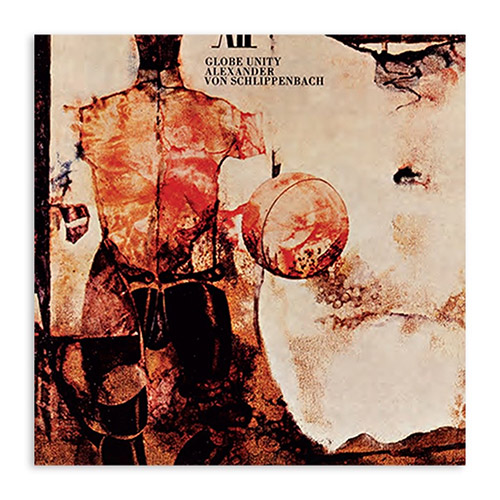
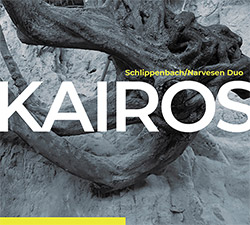

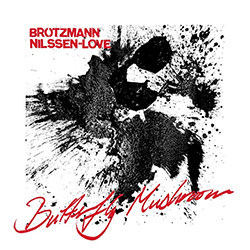
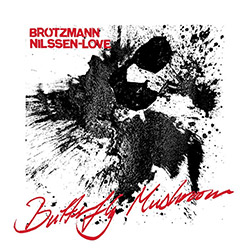
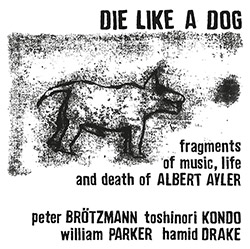

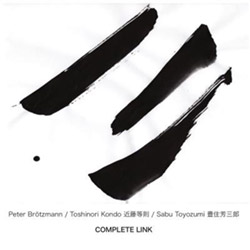
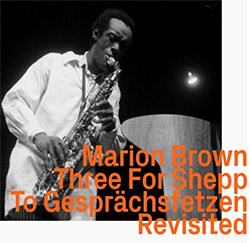


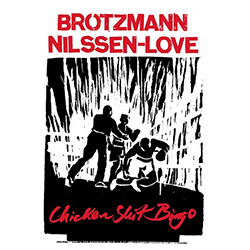

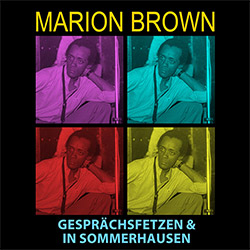

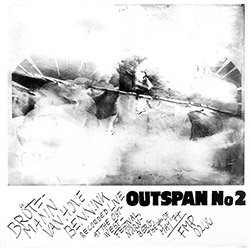


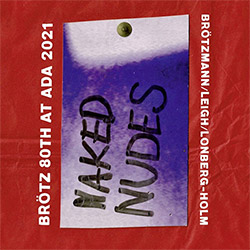




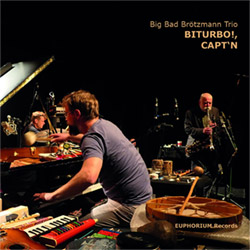
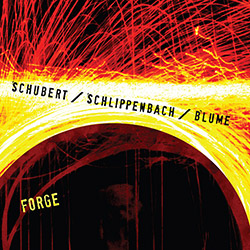
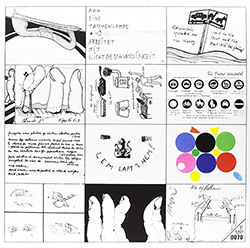
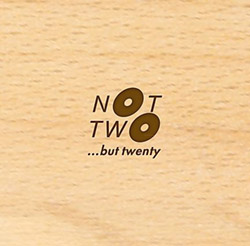


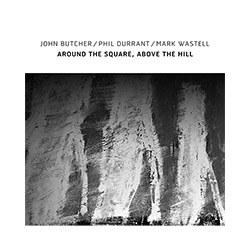
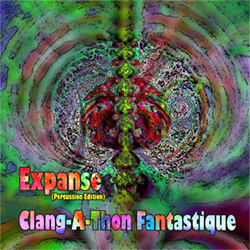
![Allen, Clifford: Singularity Codex: Matthew Shipp On Rogueart [BOOK]](https://www.teuthida.com/productImages/misc4/33454.jpg)



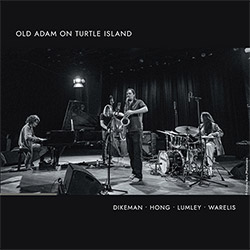
![Sun Ra: Lanquidity (DELUXE EDITION) [VINYL]](https://www.teuthida.com/productImages/misc4/35234.jpg)
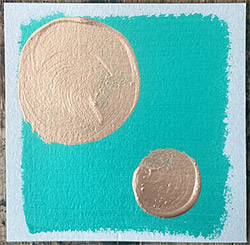
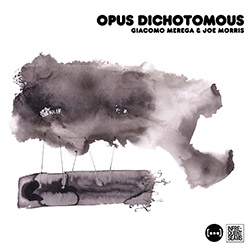
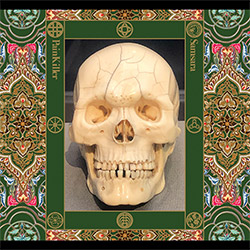
![Sun & Rain (Morgan / Laplante / Smiley / Nazary): Waterfall [VINYL]](https://www.teuthida.com/productImages/misc4/35604.jpg)
![Centazzo, Andrea: Ictus@45 - Out Off Nights [4 CD BOX SET]](https://www.teuthida.com/productImages/misc4/35611.jpg)
![Kaucic, Zlatko (Kaucic / Amado / Dorner / Grom / Guy / Fernandez / Snekkestad): INKLINGS [4 CD BOX SET]](https://www.teuthida.com/productImages/misc4/35614.jpg)
![Fernandez, Agusti feat. Barry Guy, Don Malfon, John Butcher, Jordina Milla, Liudas Mockunas, Lucia Martinez, Torben Snekkestad, Zlatko Kaucic: Agusti Fernandez @70 - Aesthetic Of Prisms. [7 CDs]](https://www.teuthida.com/productImages/misc4/35617.jpg)
![Sarian, Michael / Matthew Putman / Ledian Mola / Federico Ughi: The Sea, The Space, and Egypt, Vol. 1 [VINYL]](https://www.teuthida.com/productImages/misc4/35463.jpg)
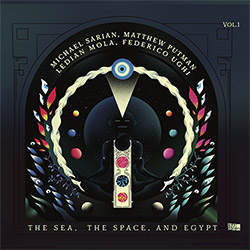
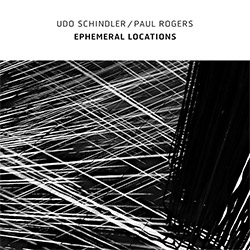




![Berne, Tim (w/ Tom Rainey / Gregg Belisle-Chi): Yikes Too [2 CDs]](https://www.teuthida.com/productImages/misc4/35601.jpg)
![Berne, Tim (w/ Rainey / Belisle-Chi): Yikes [VINYL]](https://www.teuthida.com/productImages/misc4/35602.jpg)

![Butcher / Davies / Sanders / Thomas: Unlockings [VINYL]](https://www.teuthida.com/productImages/misc4/35002.jpg)
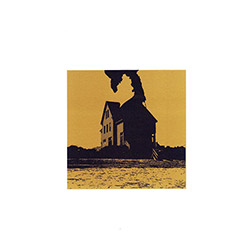
![Brulez les meubles (+ Ingrid Laubrock / Marianne Trudel / Jonathan Huard): FOLIO #5 [VINYL]](https://www.teuthida.com/productImages/misc4/35629.jpg)
![Butcher / Davies / Sanders / Thomas: Lower Marsh [VINYL]](https://www.teuthida.com/productImages/misc4/35003.jpg)
![Beins, Burkhard (w/ Dorner / Elieh / Ermke / Neumann / Renkel / Tuerlinckx / Zapparoli): Eight Duos [3 LPs]](https://www.teuthida.com/productImages/misc4/35473.jpg)

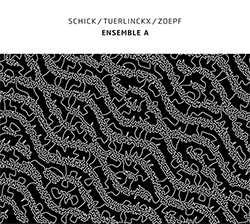
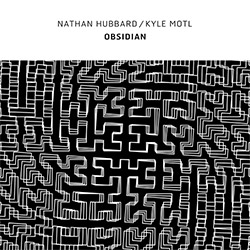
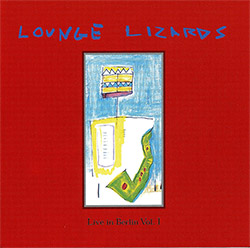
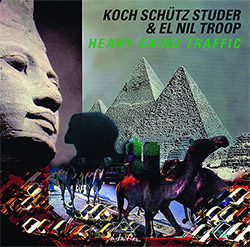

![Taylor, Cecil: The Classic Albums - 8 Remastered LPs [4 CD BOX SET]](https://www.teuthida.com/productImages/misc4/35519.jpg)
![Bang / Duch / Honore / Toop / Wastell: Wunderkammer [VINYL]](https://www.teuthida.com/productImages/misc4/35536.jpg)
![Fagaschinski, Kai / Yan Jun : Graveyard Processions [VINYL w/ DOWNLOAD]](https://www.teuthida.com/productImages/misc4/35474.jpg)
![Brant, Cody / Carl Kruger: Smoke Detail [CASSETTE w/ DOWNLOAD]](https://www.teuthida.com/productImages/misc4/35551.jpg)
![Weirs and Magic Tuber Stringband : The Crozet Tunnel [CASSETTE + DOWNLOAD]](https://www.teuthida.com/productImages/misc4/35570.jpg)
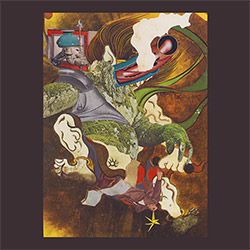
![Abcess Grenk: Erguss Von Licht [CASSETTE w/ DOWNLOAD]](https://www.teuthida.com/productImages/misc4/35560.jpg)

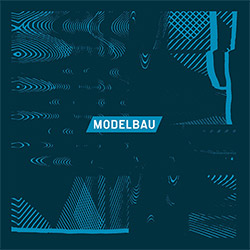
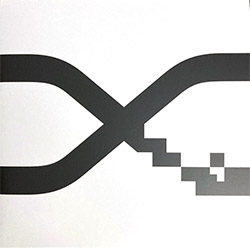
![Alva Noto: Xerrox Vol. 5 [VINYL 2 LPs]](https://www.teuthida.com/productImages/misc4/35359.jpg)
![Weston, Matt: Communism Has Appeared On The Scene [VINYL 2 LPs]](https://www.teuthida.com/productImages/misc4/35546.jpg)

![Jeck, Philip: rpm [2 CDs]](https://www.teuthida.com/productImages/misc4/35455.jpg)






![DNS: Taking Big Bites Of The Khandas Three Cafes Deep [2 CDs]](https://www.teuthida.com/productImages/misc4/35334.jpg)




![Cleaver, Gerald: The Process [VINYL]](https://www.teuthida.com/productImages/misc4/34966.jpg)




![Lonsdale, Eden: Dawnings [2 CDs]](https://www.teuthida.com/productImages/misc4/35480.jpg)







![Sanna, Claudio: Compositori Sardi Contemporanei II [2 CDs]](https://www.teuthida.com/productImages/misc4/35317.jpg)







![Zurria, Manuel: Fame di Vento [3 CDs]](https://www.teuthida.com/productImages/misc4/35167.jpg)

![Granberg, Magnus / Nattens Inbrott / Skogen: Holde Traume, Kehret Wieder! [2 CDs]](https://www.teuthida.com/productImages/misc4/35038.jpg)
![Frey, Jurg: Outermost Melodie [2 CDs]](https://www.teuthida.com/productImages/misc4/35039.jpg)

![Pavone, Jessica: Reverse Bloom [VINYL]](https://www.teuthida.com/productImages/misc4/34895.jpg)




![Modney (Modney / Wooley / Gentile / Roberts / Pluta / Symthe / ...): Ascending Primes [2 CDs]](https://www.teuthida.com/productImages/misc4/34852.jpg)






![Elephant9 : Mythical River [VINYL]](https://www.teuthida.com/productImages/misc4/34624.jpg)



![Elephant9 with Terje Rypdal: Catching Fire [VINYL 2 LPs]](https://www.teuthida.com/productImages/misc4/35355.jpg)
![Deerlady (Obomsawin, Mali / Magdalena Abrego): Greatest Hits [VINYL]](https://www.teuthida.com/productImages/misc4/34876.jpg)




![Haino, Keiji: Black Blues [2 CDs]](https://www.teuthida.com/productImages/misc4/35109.jpg)



![Surplus 1980: Illusion of Consistency [CD]](https://www.teuthida.com/productImages/misc4/35069.jpg)
![Staiano, Moe: Away Towards the Light [VINYL + DOWNLOAD]](https://www.teuthida.com/productImages/misc4/35037.jpg)



![Caveira (Gomes / Sousa / Abras / Ferrandini): Ficar Vivo [VINYL]](https://www.teuthida.com/productImages/misc4/34643.jpg)
![Gregg, J. J. / David Van Auken: Lunar Prairie [CD w/ DOWNLOAD]](https://www.teuthida.com/productImages/misc4/34611.jpg)

![Coultrain: Mundus [VINYL]](https://www.teuthida.com/productImages/misc4/32439.jpg)
![Mattin: Songbook #6 [VINYL]](https://www.teuthida.com/productImages/misc4/27317.jpg)
![Punkappella: Wake Up [7-inch VINYL]](https://www.teuthida.com/productImages/misc4/17519.jpg)
![Residents, The: WARNING: UNiNC.: Live And Experimental Recordings 1971-1972 [VINYL 2 LPs]](https://www.teuthida.com/productImages/misc4/31521.jpg)
![Coley, Byron: Dating Tips for Touring Bands [VINYL]](https://www.teuthida.com/productImages/misc4/17906.jpg)

![Lost Kisses: My Life is Sad & Funny [DVD]](https://www.teuthida.com/productImages/misc4/lostKissesDVD.jpg)